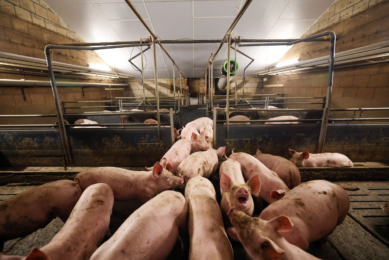Cinnamon oil: Higher FCR and less diarrhoea

Cinnamon oil seems to improve the intestinal functions of piglets, new research showed. It even dropped diarrhoea incidence by 37.5%.
A collaborative team of researchers from China, Canada and the US looked at the efficacy of dietary supplementation with cinnamon oil (oleum cinnamomi (OCM)) on growth performance and intestinal functions in piglets.
Plant extracts and essential oils are studied to a great extent to be used in animal feed. Many of these ingredients have a positive influence on animal health and performance. Oleum cinnamomi (OCM) is a type of essential oil commonly used in the food industry because of its special aroma. Previous studies have shown the antibacterial activity of OCM that was extracted from both the bark and leaves of Cinnamomum burmannii and Cinnamomun osmophloeum.
Inclusion rate of 50mg cinnamon oil
To study this further in pigs, a trial was set up in which 16 piglets (24-day-old) received either a control or a OCM diet (with 50mg cinnamon oil per kg feed).
The piglets in the cinnamon oil group seem to profit from the feed ingredient, as average daily feed intake increased with 13.6%. The diarrhoea incidence was lowered by 37.5%. Pigs in the OCM group had a numerically 18.5% greater average daily gain (ADG) than that in the control, but the difference was statistically nonsignificant due to the small number of animals per treatment group.
Effect on plasma insulin and bacteria
The cinnamon oil also had other beneficial effects. The concentration of plasma insulin for example increased by 55.9% in comparison with the control group. However, there were no differences between the control and OCM groups regarding the levels of cortisol, insulin-like growth factor 1 (IGF-1), and PGE2 in plasma. The oil also had an effect on individual bacteria balance in the caecum and colon digesta. Dietary OCM supplementation did not affect the abundance of total bacteria in the caecum and colon digesta.
Reduction of abaunday of bacteria due to cinnamon oil in the colon:
Enterobacteriaceae family: −87%
Enterococcus genus: −64%
Lactobacillus genus: −54%
Bifidobacterium genus: −76%
Clostridium coccoides: −73%
Effect of abundancy bacteria due to cinnamon oil in the caecum:
Enterococcusgenus: +212%
Lactobacillus genus: +104%
Enterobacteriaceae family: −34%
Clostridium coccoides: −59%
Bifidobacteriumgenus: −73%
Alternative to feed antibiotics
There is an urgent need to develop antibiotics-free feed, which aims at stopping the spread of antibiotic resistance and can also maintain the current level of animal production. In the present study, as shown by the increased average daily feed intake (ADFI) and reduced diarrhoea incidence, dietary supplementation with 50 mg/kg OCM improved the growth performance of pigs. The researchers therefore conclude that OCM is an effective feed additive and alternative to feed antibiotics for improving intestinal health in swine.
This scientific article is available as free (open access) text.











